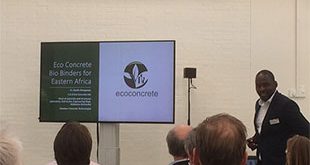Science pay policy promotes equity over equality
From the equity perspective, science teachers deserve higher remuneration, if Uganda is to achieve the best science outcomes faster. When the 2018/19 budget doubled salaries of science teachers to Shs2.2 million monthly, for two months, MPs led by Kalungu West’s Ssewungu Joseph Gonzaga and Rubaga North’s Kasibante Moses halted it, causing forced recovery of this money from teachers, worsening the situation.
The proposed Shs4 million (subtract over Shs1 million taxes) will curtail the rampant part-timing through which science teachers earn extra pay. Subsequently, teacher stability on job and in the profession will improve everywhere, regardless of location (hard-to- or easy-to-reach school).
From multiple schools, part-timers gather over Shs3 million per month within the “Massachusetts corridor” (Mukono-Kampala-Wakiso-Mpigi stretch) or up-to 1.5 million upcountry, but are ineffective and inefficient. Sadly, where supervision of teaching is vigorous but without reasonable Parents Teachers Association (PTA) pay, science teachers simply abandon government jobs.
Historical perspective
In 1987, the Prof. Senteza Kajubi Commission was constituted, from which the Government White Paper on Education was born in 1992, recommending science and technology as development drivers. This was necessary because, whereas the population was exploding, essential scientists like medical professionals, engineers, nuclear scientists, biotechnologists, agricultural researchers and science teachers were not matching demands.
The science policy introduced compulsory sciences at O-level (2006); 75% science scholarships and fees loan slots at tertiary institutions of learning; and sciences dominating university programmes.
The proposed salary enhancement will increase science learners and improve quality of science teaching, to support the National Development Plan III (2020/2025), whose focus is enhanced value addition in key growth sectors with the highest potential to generate employment. This is a complete turn-away from the old tradition of promoting humanities and associated “white-collar” graduates; like lawyers, economists, political scientists, administrators, arts teachers and so forth.
****
Frederick Dongo-Shema is an M&E Specialist and the President, Association of Biology Educators (ABE) in Uganda. dongo.frederick@yahoo.com
 The Independent Uganda: You get the Truth we Pay the Price
The Independent Uganda: You get the Truth we Pay the Price




To the independent.co.ug administrator, Your posts are always well-referenced and credible.
Hi independent.co.ug owner, Good to see your posts!